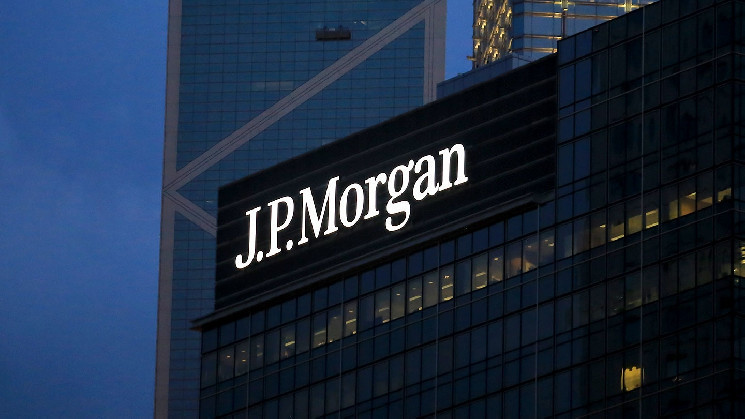Only 7% of the survey participants see blockchain as an influential technology, falling from 25% in 2022.
61% of the participants expect AI and machine learning to shape the future of trading in the next three years.
Traders see inflation, the U.S. election, and recession risk as the top three catalysts that will impact the broader market this year.
Banking giant JPMorgan’s survey found that 78% of institutional traders aren’t planning to trade cryptocurrencies in the next five years, and just a small group sees blockchain/distributed ledger technology (DLT) as the most influential technology in shaping the future of trading over the next three years.
The bank interviewed over 4,000 institutional traders for its 2024 e-Trading annual survey, which covers upcoming trends and hot topics in the trading sector from traders around the world. The participants seem less enthusiastic about blockchain technology in 2024 compared to the previous two years.
When asked which technologies will have the most impact on trading over the next three years, artificial intelligence (AI) and machine learning have dominated the answers. 61% of the participants predicted that AI and machine learning would be the most influential, up from 53% last year.
Read more: AI Agents Could Be Important ‘Buyers’ of Crypto, Says Palantir Co-Founder Joe Lonsdale
Interestingly, blockchain was considered a more influential technology in 2022, with 25% (same as AI), declining to 12% last year and falling to 7% in 2024.
The declining interest from traders isn’t a surprise. In early 2022, the digital currency sector was cooling off from 2021’s raging bull market, eventually leading to a harsh crypto winter after numerous bankruptcies and blowups that plagued the industry and prices.
However, one metric that saw a slight positive bump is the number of active institutional traders in the digital currency sector. 9% of the participants said they are currently trading crypto, up from 8% in 2023. Meanwhile, 12% of the traders said they plan to trade crypto within the next five years.
This might be because the entrance of large financial giants this year has led to a gradual recovery for the sector. January saw the much-anticipated approval of spot bitcoin exchange-traded funds (ETFs) in the U.S., an important milestone for institutional investors. The likes of BlackRock, Fidelity and WisdomTree all gained approval. The price of bitcoin (BTC) rose nearly 95% in the last twelve months, according to TradingView data.
Even though the bank has been active in the digital assets sector, JPMorgan’s CEO Jamie Dimon has long been vocal against crypto. In January, he said bitcoin is like a “pet rock” that “does nothing,” and his personal advice is not to get involved.
In terms of macro events that are expected to move the broader market this year, inflation (27% of traders), the U.S. election (20%), and recession risk (18%) were the top three catalysts flagged by the participants of the survey.
Read more: JPMorgan CEO’s Bitcoin Bashing Is a ‘Do as I Say, Not as I Do’ Situation
Read the full article here

